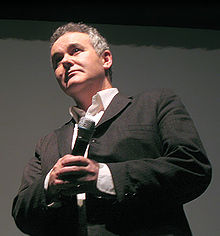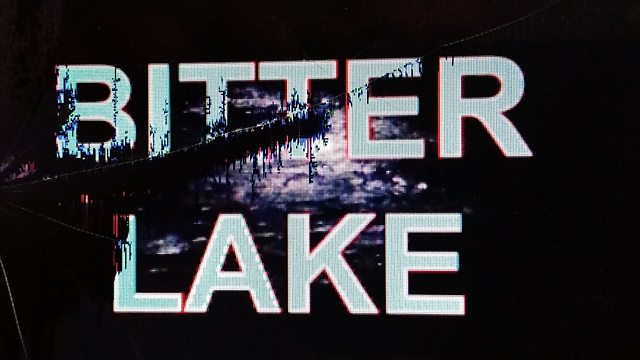in this short post I intend to explore the career of a documentary film maker that has influenced my thinking and worldview, his methods are something I wish to be able to use more often and his most recent documentary(Bitter lake) has inspired and influenced me on an emotional and intellectual level to some large degree.
Adam Curtis

Kevin Adam Curtis is an English documentary filmmaker, he was born in 1955 and describes his favorite theme as:
"power and how it works in society". He describes his work as Journalism that is expounded via film, he's won various awards including four BAFTAs, and has been closely associated with the BBC throughout his career. His works explore politics, sociology, philosophy and political history.
Born in Dartford, Kent to a left wing cinematographer father, he attended Sevenoaks school before studying Human Sciences at Mansfield College, Oxford.
Shortly after giving up his pursuit of a PhD he was hired by the BBC to produce a training film for a BBC training course. this provided an "in" to the corporation, and allowed him to be hired upon the Magazine series. That's Life.
Tim adams wrote the following in a profile of Curtis for The Observer,:
"Curtis has a remarkable feel for the serendipity of such moments, and an obsessive skill in locating them. "That kind of footage shows just how dull I can be," he admits, a little glumly. "The BBC has an archive of all these tapes where they have just dumped all the news items they have ever shown. One tape for every three months. So what you get is this odd collage, an accidental treasure trove. You sit in a darkened room, watch all these little news moments and look for connections."
this expresses my favored elements of Curtis' style, he doesn't use fluff, he uses visual metaphors and appropriate archive footage to narrate the story of his films. I prefer his methods, they allow for extremely emotive imagery that bind the intellectual content and message completely. something I dont often see in documentary. and this is something that I think more documentary film makers should do. if your creating a narrative that is powerful and in depth then the use of archive footage allows, in my mind the reality of the content to set in. It feels real because it is *REAL.

his influences
Curtis has expressed that his greatest influence was the USA trilogy,(By John Dos Passos) A series he first read at age 13, saying the following in an interview for Film Comment.com:
"You can trace back everything I do to that novel because it's all about grand history, individual experience, their relationship. And also collages, quotes from newsreels, cinema, newspapers. And it's about collage of history as well. That's where I get it all from"

My experience with Curtis's work begins with the feature length documentary, Bitter Lake, his documentary about the nation of Afghanistan, which answers the whys and hows of the current sociopolitical climate in the Middle east region, in such a way as to impart a non-binary view of the recent conflicts. it expresses the history of the region, and shows why everything in the area is as it is today.

I love this film on both an intellectual level and upon an emotional level. As someone who has grown up in the shadow of the wars in the region, someone who had previously been given no real understanding of the conflicts, of how they developed it has allowed me some measure of calm against the politically motivated binary view of what's going on there.
the film is a liberating experience and from an artistic standpoint has effected all of my works to some extent since my original viewership of it.
The film is politically important and is fairly unbiased as far as its political message goes, its more about the history behind the modern conflicts, how,who and what caused them, influenced them and why middle eastern culture is becoming so conservative, militant and insular as it is today, how its a response to the chaos of modern societies.
No comments:
Post a Comment